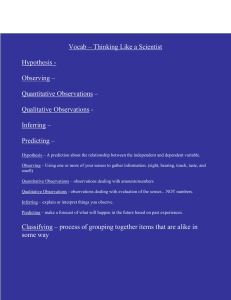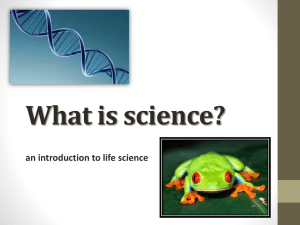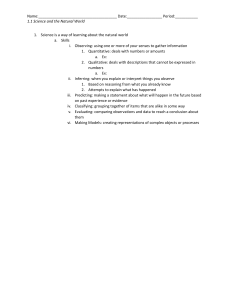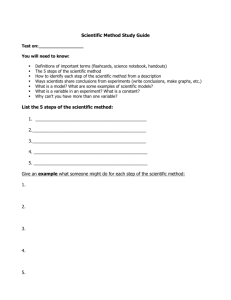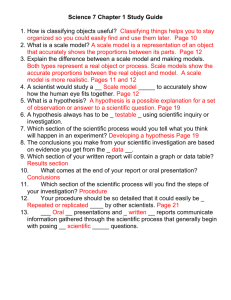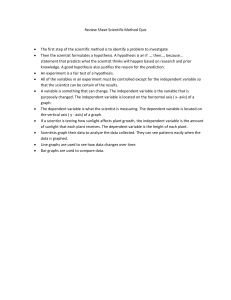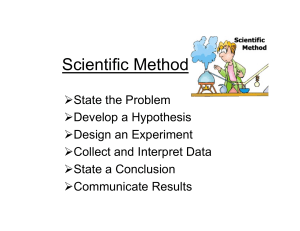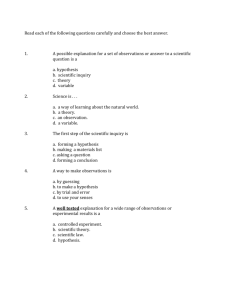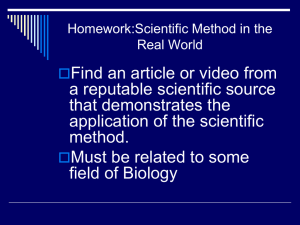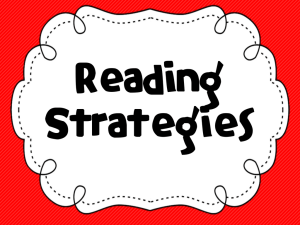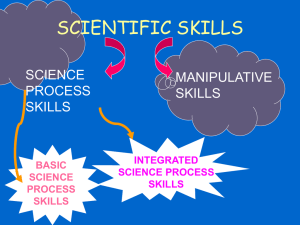WORD WALL - Republic R
advertisement
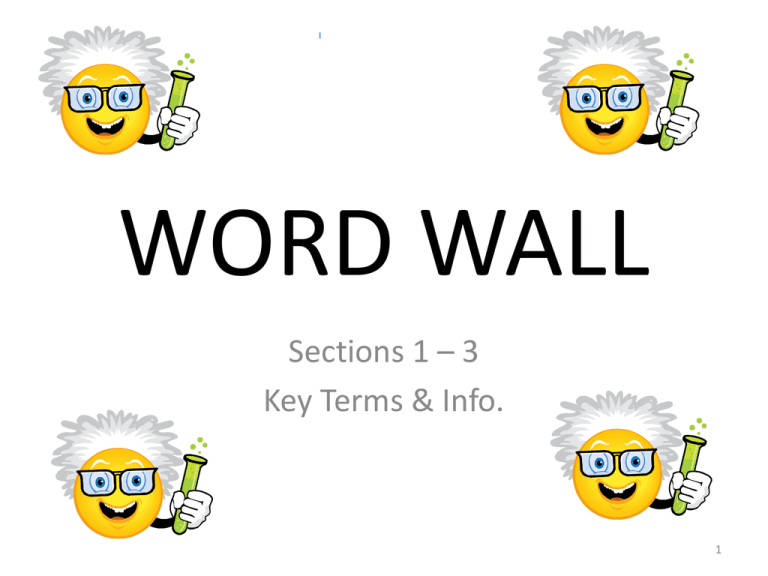
WORD WALL Sections 1 – 3 Key Terms & Info. 1 WORD WALL Thinking Like a Scientist!!! Section 1 Pages 6-12 2 What are five skills scientist use to learn about the world? 1. 2. 3. 4. 5. Observing Inferring Predicting Classifying Making Models 3 What are inferences based on? Reasoning from what you already know. 4 What important attitudes do successful scientist posses? 1. 2. 3. 4. 5. Curiosity Honesty Open-mindedness Skepticism Creativity 5 OBSERVING Using one or more of your senses to gather information. 6 QUANTITATIVE OBSERVATIONS Observations that deal with a number, or amount. 7 QUALITATIVE OBSERVATIONS Observations that deal with descriptions that cannot be expressed in numbers. 8 INFERRING Explaining or interpreting things you observe. 9 PREDICTING Making a forecast of what will happen in the future based on experience or evidence. 10 MAKING MODELS Creating representations of complex objects or processes. 11 CLASSIFYING The process of grouping together items that are alike in some way. 12 SCIENCE A way of learning about the natural world. 13 SKEPTICISM An attitude of doubt. 14 WORD WALL Section 2 Pages 24 - 28 15 EXPERIMENT • An activity designed to test a hypothesis. 16 CONTROLLED EXPERIMENT • An experiment in which only one variable is manipulated at a time. 17 SCIENTIFIC METHOD PROCESS • A way of thinking about nature involving the use of certain skills to solve problems in an orderly manner. 18 DEPENDENT VARIABLE (D.V.) • What is measured in the experiment. 19 INDEPENDENT VARIABLE (I.V.) • What changes in the experiment. 20 OBSERVATION • Information collected from observation and experiments. 21 DATA • Information collected during a scientific experiment. Information must be recorded and graphed. 22 CONSTANT VARIABLE • What stays the same in the experiment. 23 HYPOTHESIS • A possible answer to a question based on gathered information. • Example: If the IV goes up or down then the DV will go up or down. 24 What does the HYPOTHESIS always start with? • If the IV goes up or down then the DV will go up or down. 25 What does the S.Q. always start with? • WHAT is the effect of the IV on the DV? 26 WORD WALL Why Study Science? Section 3 Pages 24 - 28 27 SCIENTIFIC LITERACY The knowledge and understanding of scientific terms and principles required for evaluating information, making personal decisions, and taking part in public affairs. 28
